|
Books Should Be Free Loyal Books Free Public Domain Audiobooks & eBook Downloads |
|
|
Books Should Be Free Loyal Books Free Public Domain Audiobooks & eBook Downloads |
|
History Books |
|---|
|
Book type:
Sort by:
View by:
|
By: T. F. Thiselton Dyer (1848-1923) | |
|---|---|
 Strange Pages from Family Papers
Strange Pages from Family Papers
“Among other qualities which have been supposed to belong to a dead man’s hand, are its medicinal virtues, in connection with which may be mentioned the famous ‘dead hand,’ which was, in years past, kept at Bryn Hall, Lancashire… Thus the case is related of a woman who, attacked with the smallpox, had this dead hand in bed with her every night for six weeks, and of a poor lad living near Manchester who was touched with it for the cure of scrofulous sores.” Though not all chapters have such gruesome subjects as The Dead Hand, all are full of a curious mixture of superstition and local history that will delight and amuse the modern listener. | |
By: Ben Jonson (1573-1637) | |
|---|---|
 Sejanus: His Fall
Sejanus: His Fall
| |
 The Poetaster
The Poetaster
| |
By: Mohandas Karamchand Gandhi | |
|---|---|
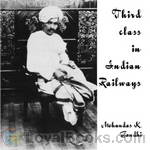 Third Class in Indian Railways
Third Class in Indian Railways
Mohandas Karamchand Gandhi (1869 – 1948) was the pre-eminent political and spiritual leader of India during the Indian independence movement. He was the pioneer of satyagraha — resistance to tyranny through mass civil disobedience. This philosophy was firmly founded upon ahimsa, or total nonviolence, and led India to independence and inspired movements for civil rights and freedom across the world. Gandhi is commonly known around the world as Mahatma Gandhi and in India also as Bapu. He is officially honoured in India as the Father of the Nation; his birthday, 2 October, is commemorated there as Gandhi Jayanti, a national holiday. | |
By: James J. Walsh (1865-1942) | |
|---|---|
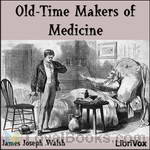 Old-Time Makers of Medicine
Old-Time Makers of Medicine
Dr. Walsh’s Old-Time Makers of Medicine chronicles the history and development of modern medicine from ancient times up to the discovery of America. Throughout this historical guide, Dr. Walsh shows numerous examples of practices thought to be entirely modern that were clearly anticipated hundreds or thousands of years ago. Ancient healers sought to use the body’s natural healing ability, rather than rely exclusively on external cures. Physicians even in ancient times relied on what is now recognized as the placebo effect... | |
By: Dame Shirley (d.1906) | |
|---|---|
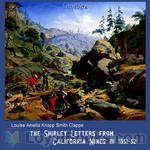 The Shirley Letters from California Mines in 1851-52
The Shirley Letters from California Mines in 1851-52
Louise Amelia Knapp Smith Clappe moved to California from Massachusetts during the Gold Rush of the mid-1800’s. During her travels, Louise was offered the opportunity to write for The Herald about her travel adventures. It was at this point that Louise chose the name “Shirley” as her pen name. Dame Shirley wrote a series of 23 letters to her sister Mary Jane (also known as Molly) in Massachusetts in 1851 and 1852. The “Shirley Letters”, as the collected whole later became known, gave true accounts of life in two gold mining camps on the Feather River in the 1850s... | |
By: Mary Johnston (1870-1936) | |
|---|---|
 To Have And To Hold
To Have And To Hold
When I first started reading this book, I thought it to be a historical romance novel. As I read further, I pondered whether it might be a sea-faring story. Reading still further, I determined it to be an adventure story. Alas, it is all three. To Have And To Hold, written by Mary Johnston was the bestselling novel of 1900. The story takes place in colonial Jamestown during the 1600’s. Captain Ralph Percy, an English soldier turned Virginian explorer buys a wife - little knowing that she is the escaping ward of King James I... | |
 The Long Roll
The Long Roll
| |
 Pioneers of the Old South: a chronicle of English colonial beginnings
Pioneers of the Old South: a chronicle of English colonial beginnings
| |
 Prisoners of Hope A Tale of Colonial Virginia
Prisoners of Hope A Tale of Colonial Virginia
| |
By: Enos A. Mills (1870-1922) | |
|---|---|
 Wild Life on the Rockies
Wild Life on the Rockies
“This book contains the record of a few of the many happy days and novel experiences which I have had in the wilds. For more than twenty years it has been my good fortune to live most of the time with nature, on the mountains of the West. I have made scores of long exploring rambles over the mountains in every season of the year, a nature-lover charmed with the birds and the trees. On my later excursions I have gone alone and without firearms. During three succeeding winters, in which I was a Government Experiment Officer and called the “State Snow Observer,” I scaled many of the higher peaks of the Rockies and made many studies on the upper slopes of these mountains.” | |
By: William Bradford (1590-1657) | |
|---|---|
 Bradford's History of 'Plimoth Plantation' From the Original Manuscript. With a Report of the Proceedings Incident to the Return of the Manuscript to Massachusetts
Bradford's History of 'Plimoth Plantation' From the Original Manuscript. With a Report of the Proceedings Incident to the Return of the Manuscript to Massachusetts
| |
By: George Hamilton | |
|---|---|
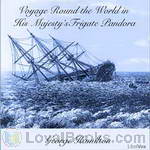 Voyage Round the World in His Majesty's Frigate Pandora
Voyage Round the World in His Majesty's Frigate Pandora
George Hamilton was the surgeon assigned to the frigate Pandora. The British Admiralty ordered the ship to the Pacific to arrest the Bounty mutineers and bring them back to England for trial. The commander, Captain Edward Edwards, also was ordered to chart the passage between Australia and New Guinea. While Edwards managed to arrest the mutineers still on Tahiti, he sank the Pandora on a reef near Australia. Hamilton tells this story and also the story of the crew’s fate after the Pandora sank. | |
By: United States | |
|---|---|
 United States Declaration of Independence (HTML)
United States Declaration of Independence (HTML)
| |
By: George Pearson | |
|---|---|
 The Escape of a Princess Pat
The Escape of a Princess Pat
Being the full account of the capture and fifteen months’ imprisonment of Corporal Edwards, of the Princess Patricia’s Canadian Light Infantry, and his final escape from Germany into Holland. | |
By: George Alfred Henty (1832-1902) | |
|---|---|
 By Pike and Dyke
By Pike and Dyke
It is the 1570's, and the people of the Netherlands live in terror under the cruel dominion of Spain. Though many long to be free of Spanish tyranny, efforts at rebellion are failing, and allies are nowhere to be found. Edward “Ned” Martin, son of an English captain and a Dutch lady, is thrust into the conflict when he resolves to help his mother’s people and avenge his murdered relatives. Entering the service of the revolutionary leader William the Silent, Prince of Orange, Ned is called upon to carry out dangerous secret missions deep within occupied territory... | |
By: Lyndon Orr pseudonym of Harry Thurston Peck (1856-1914) | |
|---|---|
 Famous Affinities of History: The Romance of Devotion
Famous Affinities of History: The Romance of Devotion
"Famous Affinities of History" is a book of passion-filled accounts of the most famous love affairs of history. The stories of Cleopatra, Victor Hugo, Honore de Balzac, Jonathan Swift, Charles Dickens, Karl Marx, Percy Bysshe Shelley, Byron, George Sand and other famous people of all times (even those of royal blood are not spared), are dealt with in Lyndon Orr's own interesting and suspenseful style. Written in four volumes, this book makes for an informative, interesting and thoroughly enjoyable read, giving us an insight into the lives and lifestyles of various popular figures of history. | |
By: Talbot Mundy (1879 -1940) | |
|---|---|
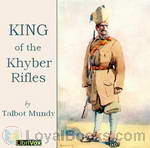 King of the Khyber Rifles
King of the Khyber Rifles
Athelstan King is a British Secret Agent stationed in India at the beginning of WWI. He is attached to the Khyber Rifles regiment as a cover, but his real job is to prevent a holy war. "To stop a holy war single-handed would be rather like stopping the wind--possibly easy enough, if one knew the way." King is ordered to work with a mysterious and powerful Eastern woman, Yasmini. Can King afford to trust her? Can he afford not to? (Introduction by Brett W. Downey) | |
By: Walter Pater | |
|---|---|
 Appreciations, with an Essay on Style
Appreciations, with an Essay on Style
Appreciations, with an Essay on Style, is a collection of Walter Pater's previously-published essays on literature. The collection was well received by public and critic since its first edition, in 1889. The volume includes an appraisal of the poems of Dante Gabriel Rossetti, first printed in 1883, a few months after Rossetti's death; an essay on Thomas Browne, whose Baroque style Pater admired; and a discussion of Measure for Measure, one of Pater's most often reprinted pieces. The second edition, published in 1890, had a few modifications, and is the basis for all other editions of the book. | |
 Greek Studies: a Series of Essays
Greek Studies: a Series of Essays
| |
 Essays from 'The Guardian'
Essays from 'The Guardian'
| |
By: John Munro (1849-1930) | |
|---|---|
 The Story of Electricity
The Story of Electricity
In the book's preface, the author writes: "Let anyone stop to consider how he individually would be affected if all electrical service were suddenly to cease, and he cannot fail to appreciate the claims of electricity to attentive study."In these days when we take for granted all kinds of technology - communications, entertainment, medical, military, industrial and domestic - it is interesting to learn what progress had been made in the fields of electricity and technology by the beginning of the 20th century... | |
 Heroes of the Telegraph
Heroes of the Telegraph
| |
By: Horatio Alger, Jr. (1832-1899) | |
|---|---|
 Timothy Crump's Ward
Timothy Crump's Ward
A poor family is surprised with an infant on their doorstep on New Year’s Eve with a note and monetary support requesting them to raise the child. Eight years later, the child is stolen and the family is put into more trouble trying to find her. This is a story of how love and good morals are reward with a fairy tale “happily ever after” ending. | |
By: United States. Work Projects Administration | |
|---|---|
 Slave Narratives: a Folk History of Slavery in the United States From Interviews with Former Slaves Arkansas Narratives, Part 1
Slave Narratives: a Folk History of Slavery in the United States From Interviews with Former Slaves Arkansas Narratives, Part 1
| |
By: Susan Warner (1819-1885) | |
|---|---|
 Daisy in the Field
Daisy in the Field
| |
By: Mrs. Eugenia Dunlap Potts (1840-1912) | |
|---|---|
 Historic Papers on the Causes of the Civil War
Historic Papers on the Causes of the Civil War
While claiming to be historical papers on the causes of the United States Civil War, the author indulges in some Slavery Apologetics. An interesting view from a southern lady on what caused the war and why the south was the underdog. | |
By: Ulysses S. Grant (1822-1885) | |
|---|---|
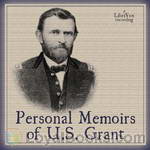 Personal Memoirs of U. S. Grant
Personal Memoirs of U. S. Grant
"In preparing these volumes for the public, I have entered upon the task with the sincere desire to avoid doing injustice to any one, whether on the National or Confederate side, other than the unavoidable injustice of not making mention often where special mention is due. There must be many errors of omission in this work, because the subject is too large to be treated of in two volumes in such way as to do justice to all the officers and men engaged. There were thousands of instances, during the rebellion, of individual, company, regimental and brigade deeds of heroism which deserve special mention and are not here alluded to... | |
By: May Agnes Fleming (1840-1880) | |
|---|---|
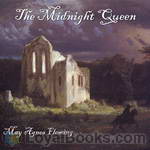 The Midnight Queen
The Midnight Queen
May Agnes Fleming is renowned as Canada's first best-selling novelist. She wrote 42 novels, many of which have only been published posthumely.The Midnight Queen is set in London, in the year of the plague 1665. Sir Norman Kingsley visits the soothsayer "La Masque" who shows him the vision of a beautiful young lady. Falling madly in love with her, he is astonished to find her only a short time later and saves her from being buried alive. He takes her home to care for her, but while he fetches a doctor, she disappears. Sir Kingsley and his friend Ormistan embark on an adventure to solve the mystery of the young lady - will they ever find her again? | |
By: Frank Norris (1870-1902) | |
|---|---|
 The Surrender of Santiago An Account of the Historic Surrender of Santiago to General Shafter, July 17, 1898
The Surrender of Santiago An Account of the Historic Surrender of Santiago to General Shafter, July 17, 1898
| |
By: George Gissing (1857-1903) | |
|---|---|
 By the Ionian Sea Notes of a Ramble in Southern Italy
By the Ionian Sea Notes of a Ramble in Southern Italy
| |
By: James Cook | |
|---|---|
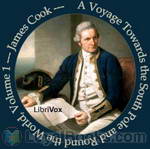 A Voyage Towards the South Pole and Round the World
A Voyage Towards the South Pole and Round the World
Having, on his first voyage, discovered Australia, Cook still had to contend with those who maintained that the Terra Australians Incognita (the unknown Southern Continent) was a reality. To finally settle the issue, the British Admiralty sent Cook out again into the vast Southern Ocean with two sailing ships totalling only about 800 tons. Listen as Cook, equipped with one of the first chronometers, pushes his small vessel not merely into the Roaring Forties or the Furious Fifties but becomes the first explorer to penetrate the Antarctic Circle, reaching an incredible Latitude 71 degrees South, just failing to discover Antarctica. (Introduction by Shipley) | |
By: John Mark | |
|---|---|
 Jesus of Nazareth, A Biography
Jesus of Nazareth, A Biography
"Jesus of Nazareth, a Biography, by John Mark," recognizes the author of the second Gospel as that "John, whose surname was Mark" (Acts 15:37), whom Barnabas chose as companion when he sailed for Cyprus on his second missionary journey. In making use of the new title, the plan of the Editor is to present "The Gospel: According to Mark" as it would be printed were it written in the twentieth rather than the first century. (Introduction from Forward, by D. Appleton & Co, Publishers, 1922) | |
By: Abraham Tomlinson | |
|---|---|
 The Military Journals of Two Private Soldiers, 1758-1775
The Military Journals of Two Private Soldiers, 1758-1775
“Perceiving that much of the intrinsic value of these Journals would consist in a proper understanding of the historical facts to which allusions are made in them, I prevailed upon Mr. Lossing, the well-known author of the “Pictorial Field-Book of the Revolution” to illustrate and elucidate these diaries by explanatory notes. His name is a sufficient guaranty for their accuracy and general usefulness” | |
By: Clara Reeve (1729-1807) | |
|---|---|
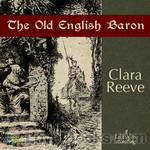 The Old English Baron
The Old English Baron
The story follows the adventures of Sir Philip Harclay, who returns to medieval England to find that the castle seat and estate of his friend Lord Lovel have been usurped. A series of revelations, horrors and betrayals climax in a scene of single combat in which good battles evil for the return of the prize. | |
By: Doris Stevens (1892-1963) | |
|---|---|
 Jailed for Freedom
Jailed for Freedom
A first-hand account of the 1913-1919 campaign of American suffragists, detailing their treatment at the hands of the courts, and the true conditions of their incarceration. | |
By: William Sangster (1808-1888) | |
|---|---|
 Umbrellas and Their History
Umbrellas and Their History
A whimsically serious look at the umbrella and society. | |
By: Robert V. Russell (1873-1915) | |
|---|---|
 The Tribes and Castes of the Central Provinces of India, Volume 1
The Tribes and Castes of the Central Provinces of India, Volume 1
| |
By: John Dos Passos (1896-1970) | |
|---|---|
 Three Soldiers
Three Soldiers
Three Soldiers, the second novel by John Dos Passos, follows the experiences of several young Americans thrown into the confusion and brutality of World War I.Written when the author was just twenty-three, it was key to the development of a realistic depiction of war in American literature, and earned Dos Passos, later named by Jean-Paul Sartre "the greatest living writer of our time", important early attention.Critic H L Menken said of it: "no war story can be written in the United States without challenging comparison with it--and no story that is less meticulously true will stand up to it... | |
 Rosinante to the Road Again
Rosinante to the Road Again
| |
By: Joseph Lievesley Beeston | |
|---|---|
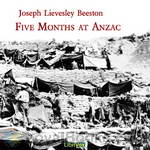 Five Months at Anzac
Five Months at Anzac
A Narrative of Personal Experiences of the Officer Commanding the 4th Field Ambulance, Australian Imperial Force from his leaving Australia December 1914 till his evacuation due to illness after 5 months at Gallipoli. Read to remember those who were there. (Introduction by Annise) | |
By: Henryk Sienkiewicz (1846-1916) | |
|---|---|
 Quo Vadis: a narrative of the time of Nero
Quo Vadis: a narrative of the time of Nero
| |
By: Charles McRae | |
|---|---|
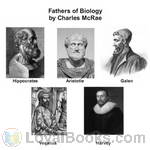 Fathers of Biology
Fathers of Biology
An account given of the lives of five great naturalists (Hippocrates, Aristotle, Galen, Vesalius and Harvey) will not be found devoid of interest. The work of each one of them marked a definite advance in the science of Biology. There is often among students of anatomy and physiology a tendency to imagine that the facts with which they are now being made familiar have all been established by recent observation and experiment. But even the slight knowledge of the history of Biology, which may be obtained from a perusal of this little book, will show that, so far from such being the case, this branch of science is of venerable antiquity... | |
By: Jane Addams | |
|---|---|
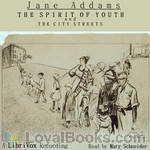 The Spirit of Youth and the City Streets
The Spirit of Youth and the City Streets
Much of the material in the following pages has appeared in current publications. It is here presented in book form in the hope that it may prove of value to those groups of people who in many cities are making a gallant effort to minimize the dangers which surround young people and to provide them with opportunities for recreation. (Introduction by Jane Addams) Jane Addams (1860 – 1935) was the first American woman to be awarded the Nobel Peace Prize. In a long, complex career, she was a pioneer settlement worker and founder of Hull House in Chicago, a public philosopher, a sociologist, an author and a spokesperson for women's suffrage and world peace. | |
By: Ezra Meeker (1830-1928) | |
|---|---|
 Ox-Team Days on the Oregon Trail
Ox-Team Days on the Oregon Trail
Ezra Meeker…was an early pioneer who traveled the Oregon Trail by ox cart as a young man. Beginning in his 70s, he worked tirelessly to memorialize the trail, repeatedly retracing the trip of his youth. This book is a memoir of those days. | |
By: Eugène Sue (1804-1857) | |
|---|---|
 The Brass Bell or, The Chariot of Death
The Brass Bell or, The Chariot of Death
| |
By: Russel Doubleday (1872-1949) | |
|---|---|
 Stories of Inventors
Stories of Inventors
Doubleday chronicles the history of everyday inventions that form the foundation of technology now common through the world. While some of the inventions are no longer used, each example shows how inventors contributed to technology through perseverance, inspiration and clever observations. In each chapter, he gives a clear, understandable background of the technology.Many of the now outdated inventions may have inspired later inventions by meeting emerging demands. For example, Edison's filament bulb is now being phased out by more efficient CFL's, but Edison's contribution to indoor lighting likewise removed the need for inefficient gas-burning lamps... | |
By: Alexander Pushkin (1799-1837) | |
|---|---|
 Daughter of the Commandant
Daughter of the Commandant
"The Daughter of the Commandant" (better known as "The Captain's Daughter") is a historical novel by the Russian writer Alexander Pushkin, and is considered to be his finest prose work. The novel is a romanticized account of Pugachev's Rebellion in 1773-1774. The 17-year-old Pyotr Andreyich is sent by his father to military service in a remote Russian outpost, where he leans honor and love while being caught up in a violent uprising of tribal groups against the imperial government. | |
By: John Dewey (1859-1952) | |
|---|---|
 China, Japan and the U.S.A. Present-Day Conditions in the Far East and Their Bearing on the Washington Conference
China, Japan and the U.S.A. Present-Day Conditions in the Far East and Their Bearing on the Washington Conference
| |
By: William Bligh (1754-1817) | |
|---|---|
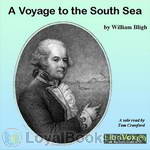 A Voyage to the South Sea
A Voyage to the South Sea
A Voyage to the South Sea, undertaken by command of His Majesty, for the purpose of conveying the Bread-fruit tree to the West Indies, in His Majesty’s ship The Bounty, commanded by Lieutenant William Bligh. Including an account of the Mutiny on board the said ship, and the subsequent voyage of part of the crew, in the ship’s boat, from Tofoa, one of the Friendly Islands, to Timor, a Dutch settlement in the East Indies. | |
 A Narrative Of The Mutiny, On Board His Majesty's Ship Bounty; And The Subsequent Voyage Of Part Of The Crew, In The Ship's Boat
A Narrative Of The Mutiny, On Board His Majesty's Ship Bounty; And The Subsequent Voyage Of Part Of The Crew, In The Ship's Boat
| |
By: Frederick Starr (1858-1933) | |
|---|---|
 In Indian Mexico (1908)
In Indian Mexico (1908)
| |
By: Thomas Henry Huxley (1825-1895) | |
|---|---|
 William Harvey and the Circulation of the Blood
William Harvey and the Circulation of the Blood
| |
By: Cyrus MacMillan (1880-1953) | |
|---|---|
 McGill and its Story, 1821-1921
McGill and its Story, 1821-1921
| |
By: Joseph Alexander Altsheler (1862-1919) | |
|---|---|
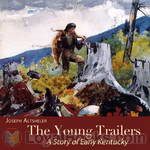 The Young Trailers: A Story of Early Kentucky
The Young Trailers: A Story of Early Kentucky
This is the story of Henry Ware, a young boy living in the wilds of the Kentucky frontier of the 1700's. The story follows Henry as he helps to establish a frontier outpost, is captured by an Indian tribe, and ultimately ensures the safety and security of a band of settlers against the warring Shawnee Indians. The Young Trailers is action packed and brings to life the adventures that awaited the early settlers as they traversed into the endless forests of the American frontier. | |
 The Guns of Shiloh
The Guns of Shiloh
The Northern Army has just be handed a great defeat at Bull Run and is headed back to Washington, DC. How will the North answer this defeat? Follow our hero, Dick Mason, into the Western campaign to find out.This is the second book in the Civil War Series by Joseph A. Altsheler. | |
 The Star of Gettysburg
The Star of Gettysburg
The Army of Northern Virginia, still victorious after three hard years of fighting, capitalize on their victories at Fredericksburg and Chancellorsville, and a young Harry Kenton, is an eyewitness to the Confederate invasion of the north, culminating in the epic three-day struggle at Gettysburg, Pennsylvania, where Robert E. Lee puts into place a strategy that will end the war, or shatter his army. (Introduction by Robert Fletcher) | |
 Sword of Antietam
Sword of Antietam
"The Sword of Antietam" tells a complete story, but it is one in the chain of Civil War romances, begun in "The Guns of Bull Run" and continued through "The Guns of Shiloh" and "The Scouts of Stonewall." The young Northern hero, Dick Mason, and his friends are in the forefront of the tale. | |
 Before the Dawn A Story of the Fall of Richmond
Before the Dawn A Story of the Fall of Richmond
| |
 Rock of Chickamauga
Rock of Chickamauga
"The Rock of Chickamauga," presenting a critical phase of the great struggle in the west, is the sixth volume in the series, dealing with the Civil War, of which its predecessors have been "The Guns of Bull Run," "The Guns of Shiloh," "The Scouts of Stonewall," "The Sword of Antietam" and "The Star of Gettysburg." Dick Mason who fights on the Northern side, is the hero of this romance, and his friends reappear also. | |
 Scouts of Stonewall
Scouts of Stonewall
In this third book of Joseph Altsheler's Civil War series, Harry Kenton, a lieutenant in the Southern Army, is on scout patrol in the Shenandoah Valley. He has attracted the notice of the great General Stonewall Jackson after his regiment, the Invincibles of South Carolina, suffered great losses at the Battle of Bull Run. As the war continues, Harry meets each challenge that he faces with his close friends and fellow warriors. | |
 Shades of the Wilderness
Shades of the Wilderness
"The Shades of the Wilderness" is the seventh book of the Civil War Series by Joseph A. Altsheler. Picking up where "The Star of Gettysburg" left off, this story continues the Civil War experiences of Harry Kenton and his friends in the Southern army, from the retreat after Gettygurg, to Richmond, and then through the battles of the Wilderness and Spottsylvania, to Robert E. Lee's heroic stand during the siege of Petersburg. Other books in the Civil War series are: "The Guns of Bull Run," "The Guns of Shiloh," "The Scouts of Stonewall," "The Sword of Antietam", "The Star of Gettysburg","The Rock of Chickamauga", and "The Tree of Appomattox." | |
 Tree of Appomattox
Tree of Appomattox
"The Tree of Appomattox" concludes the series of connected romances dealing with the Civil War, begun in "The Guns of Bull Run," and continued successively through "The Guns of Shiloh," "The Scouts of Stonewall," "The Sword of Antietam," "The Star of Gettysburg," "The Rock of Chickamauga" and "The Shades of the Wilderness" to the present volume. It has been completed at the expense of vast labor, and the author has striven at all times to be correct, wherever facts are involved. So far, at least, no historic detail has been challenged by critic or reader... | |
 The Sun Of Quebec A Story of a Great Crisis
The Sun Of Quebec A Story of a Great Crisis
| |
By: Wright, Orville and Wilbur (1871-1948 / 1867-1912) | |
|---|---|
 The Early History of the Airplane
The Early History of the Airplane
The Brothers Orville (1871 - 1948) and Wilbur (1867 – 1912) Wright made the first controlled, powered and sustained heavier-than-air flight, on 17th December 1903. They were not the first to build and fly aircraft, but they invented the controls that were necessary for a pilot to steer the aircraft, which made fixed wing powered flight possible. The Early History of the Airplane consists of three short essays about the beginnings of human flight. The second essay retells the first flight: "This... | |
By: Peter C. Welsh | |
|---|---|
 Woodworking Tools 1600-1900
Woodworking Tools 1600-1900
| |
By: Woods Hutchinson | |
|---|---|
 A Handbook of Health
A Handbook of Health
The Woods Hutchinson Health Series, A HANDBOOK OF HEALTHBy Woods Hutchinson, A. M., M. D. PREFACE Looking upon the human body from the physical point of view as the most perfect, most ingeniously economical, and most beautiful of living machines, the author has attempted to write a little handbook of practical instruction for the running of it. And seeing that, like other machines, it derives the whole of its energy from its fuel, the subject of foods--their properties, uses, and methods of preparation--has been gone into with unusual care... | |
By: Edward Streeter (1891-1976) | |
|---|---|
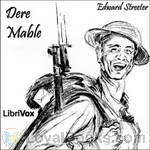 Dere Mable
Dere Mable
Bill is in training camp, preparing to go off to World War I. This book is a collection of love letters written to his sweetheart, Mable. The letters are humorous, mis-spelled, and have many stories of life in an army camp – all from Bill’s unique perspective. | |
 "Same old Bill, eh Mable!"
"Same old Bill, eh Mable!"
| |
By: Oliver Wendell Holmes (1841-1935) | |
|---|---|
 The Path of the Law
The Path of the Law
| |
By: Oliver Wendell Holmes, Sr. (1809-1894) | |
|---|---|
 My Hunt After 'The Captain'
My Hunt After 'The Captain'
Holmes describes his frantic search through Civil War torn landscapes for his wounded son, the future Supreme Court Justice. Originally published in The Atlantic Magazine, 1862. Holmes, Sr. (1809 -1894) was an American physician, poet, professor, lecturer, and author. He was regarded by his peers as one of the best writers of the 19th century. His most famous prose works are the "Breakfast Table" series, which began with The Autocrat of the Breakfast Table (1858). He is also recognized as an important medical reformer. | |
By: Frederick Litchfield | |
|---|---|
 Illustrated History of Furniture
Illustrated History of Furniture
From the Earliest to the Present TimeBy Frederick Litchfield.PREFACE.In the following pages the Author has placed before the reader an account of the changes in the design of Decorative Furniture and Woodwork, from the earliest period of which we have any reliable or certain record until the present time. A careful selection of illustrations has been made from examples of established authenticity, the majority of which are to be seen, either in the Museums to which reference is made, or by permission of the owners; and the representations of the different interiors will convey an idea of the character and disposition of the furniture of the periods to which they refer... | |
By: Samuel Smiles (1812-1904) | |
|---|---|
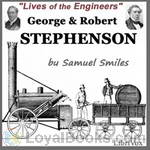 Lives of the Engineers (George and Robert Stephenson)
Lives of the Engineers (George and Robert Stephenson)
George Stephenson did not invent the steam engine, that was due to Newcomen and later to James Watt. He did not invent the steam locomotive, that was due to a number of people including Cugnot, Trevithick and others. He did not invent the Railway. Railways or tramways had been in use for two hundred years before Stephenson.The reason why Stephenson was known as ‘The father of the steam locomotive’ was that he took a primitive, unreliable and wholly uneconomic device and turning it into an efficient... | |
By: Robert W. Chambers (1865-1933) | |
|---|---|
 The Reckoning
The Reckoning
| |
 Special Messenger
Special Messenger
| |
By: Elinore Pruitt Stewart (1878-1933) | |
|---|---|
 Letters of a Woman Homesteader
Letters of a Woman Homesteader
The writer of the following letters is a young woman who lost her husband in a railroad accident and went to Denver to seek support for herself and her two-year-old daughter, Jerrine. Turning her hand to the nearest work, she went out by the day as house-cleaner and laundress. Later, seeking to better herself, she accepted employment as a housekeeper for a well-to-do Scotch cattle-man, Mr. Stewart, who had taken up a quarter-section in Wyoming. The letters, written through several years to a former employer in Denver, tell the story of her new life in the new country... | |
 Letters on an Elk Hunt
Letters on an Elk Hunt
This is a sequel to Letters of a Woman Homesteader in which Elinore Rupert (Pruitt) Stewart describes her arrival and early years on a Burntfork Wyoming ranch in 1909-1913. The letters are written to her elderly friend, Mrs. Coney, in Denver. In the present collection of letters, Elinore describes a lively excursion on horseback and wagon into the Wyoming wilderness during July-October 1914. Her traveling companions are her husband “Mr. Stewart,” their three oldest children, and kind-hearted, opinionated neighbor Mrs... | |